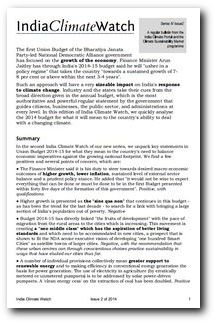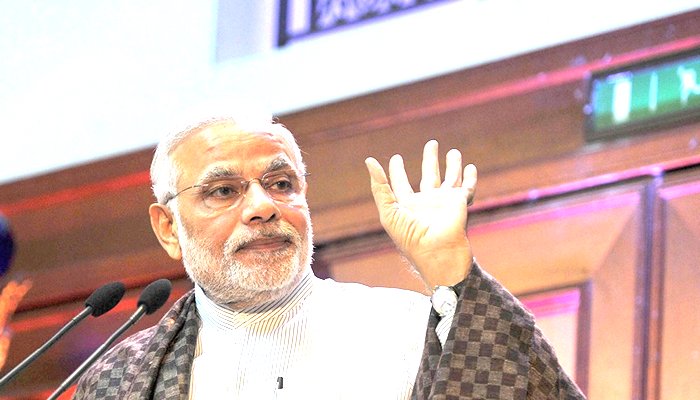
If Prime Minister Narendra Modi were better advised he could avoid being contradictory in his discourses – including informal ones such as the one he delivered a few days ago in Germany – about development, about our traditions and about climate change. The NDA-BJP government is almost a year old, and Modi’s short conversation on these subjects only underlines that his government is still ill-advised on climate change.
There are aspects of his conversation, conducted with the Indian community in Berlin, the capital of Germany, with which we agree. And there are more aspects with which we do not. Here, provided in the order they were reported upon, is what Modi said, followed by our view.
a) “I am surprised that the world is scolding us even though our per capita gas emission is the lowest.”
We cannot calculate our way out of the position that, in April 2015, our population is about 1,275 million people and that each of these people – young and old, rich and poor, urban and rural – is responsible to some degree for emissions. What “the world” is more pertinently reminding us about is that the number of Indian citizens multiplied by an ‘average’ emission does amount to a very large volume of carbon (and of gases that add to global warming and climate change).
What this government ought to be paying very much more attention to are the relative inequalities – inside an apparently low per capita emission. In the first place, minors and seniors generally have a smaller (or even much smaller) individual footprint. That leaves about 688 million adults whose contributions to emissions need to be considered. From this number, it is the 241 million or so adult inhabitants of our urban areas whose contributions count for more, and amongst these it is those who have entered (or are entering) the middle strata of the middle class, and of course those who are wealthier than the middle class, whose individual and household contributions count for even more.
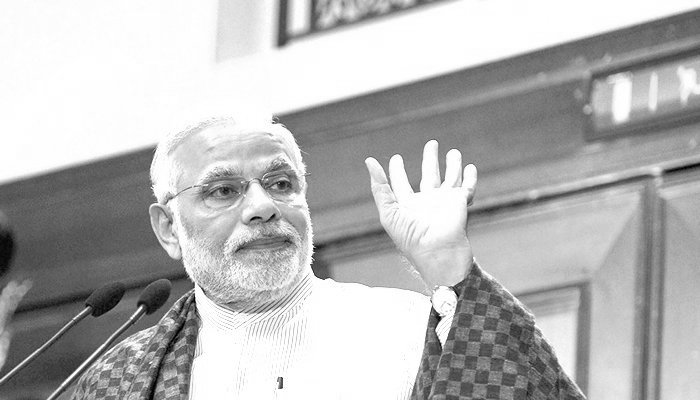 So the question to the Prime Minister is not about low per capita emissions but about the inequalities present in individual and household emissions responsibilities that are obscured by the large number of 1,275 million. We may be indifferent to the ‘scolding’ of the world, but we do think think there should be far more scolding within India, the states and the cities, for our continuing to use a per capita emissions basis that hides true responsibility.
So the question to the Prime Minister is not about low per capita emissions but about the inequalities present in individual and household emissions responsibilities that are obscured by the large number of 1,275 million. We may be indifferent to the ‘scolding’ of the world, but we do think think there should be far more scolding within India, the states and the cities, for our continuing to use a per capita emissions basis that hides true responsibility.
b) “The whole world is posing questions to us. Those who have destroyed climate are asking questions to us. If anybody has served nature, it is Indians.”
We agree that our serving of nature has been exemplary in recorded and oral histories, but only until the present era and particularly until the immediate contemporary period from around 1990. Over the last generation and a half, we cannot make such a claim.
Our South Asian neighbours – Bangladesh, Nepal, Pakistan and Sri Lanka – have by all three measures relatively small global impacts. The size of our population and the depth of our industry and economy however has made India the third largest emitter of CO2 (after China and the USA). But if India seeks some sort of ‘parity’ in electricity use – or if India sees the low per capita CO2 emissions as a ‘development’ gap – our total contribution to CO2 emissions will only rise faster, hurting the environment (and nature) that we share with our neighbours.
 This is unlikely to result in any constructive recognition of all that is linked. A country’s total emissions is one part of the ‘development’ picture and others are at least as important. There are also tons of CO2 emitted per capita (India has often said that its per capita emissions are far below those of the West). And there is per capita consumption of electricity (which is still mainly generated by burning coal).
This is unlikely to result in any constructive recognition of all that is linked. A country’s total emissions is one part of the ‘development’ picture and others are at least as important. There are also tons of CO2 emitted per capita (India has often said that its per capita emissions are far below those of the West). And there is per capita consumption of electricity (which is still mainly generated by burning coal).
c) “India will set the agenda for the upcoming Conference of Parties (COP)” [meeting that is to be held in Paris, France, in September].
As for setting an agenda, what is to be set, with what section of citizens’ agreement and under whose terms, all these remain unknown. Modi’s assertion comes as a surprise then. For the citizens of India and the residents of 35 states and union territories are ignorant of such an agenda, if it exists. We would prefer to recall some of the good advice provided by the IPCC Fifth Assessment Report: “Climate change has the characteristics of a collective action problem at the global scale, because most greenhouse gases accumulate over time and mix globally, and emissions by any agent (individual, community, company, country) affect other agents.”
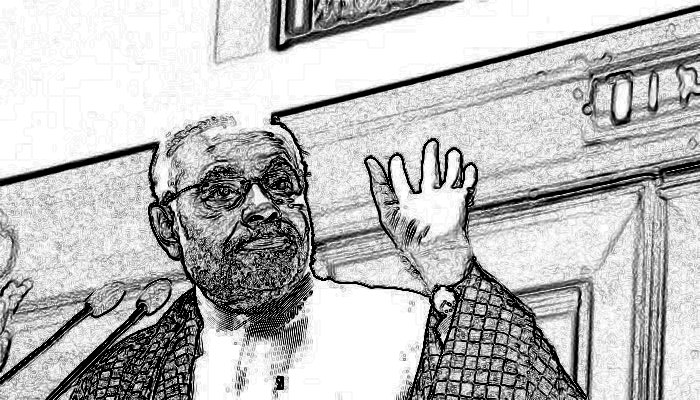 Thus the message to policy-makers is clear – what counts is what you do at home, in states and districts. The expectation that “international cooperation” should guide effective adaptation at all levels is no longer (and in our view has never been) tenable.
Thus the message to policy-makers is clear – what counts is what you do at home, in states and districts. The expectation that “international cooperation” should guide effective adaptation at all levels is no longer (and in our view has never been) tenable.
d) Modi said the solutions to the ‘crisis’ are in India’s traditions and customs, and that India wants solutions to the global problem of climate change.
What we see however is embarrassing proof of our very un-ecological and climate unfriendly new habits. In urban areas – where most of the buying of vehicles for households has taken place – the physical space available for the movement of people and goods has increased only marginally, but the number of vehicles (cars, two-wheelers, goods carriers) has increased quickly. Naturally this ‘growth’ has choked our city wards. More motorised conveyance per household also means more fuel demanded per household, and more fuel (and money) wasted because households are taught (by the auto industry) that they are entitled to wasteful personal mobility. Over 20 years, the number of cars per household has increased 4.1 times but the number of buses per household has increased only 2.8 times. This negligent wastefulness is at odds with the ‘traditions and customs’ referred to by Prime Minister Modi.
Finally, as we pointed out recently, there are no ‘terms of trade’ concerning climate change and its factors. There is no deal to jockey for in climate negotiations between a narrow and outdated idea of GDP-centred ‘development’ and monetary compensation. The government of India is not a broking agency to bet a carbon-intensive future for India against the willingness of Western countries to pay in order to halt such a future. This is not a carbon casino and the NDA-BJP government must immediately stop behaving as if it is.
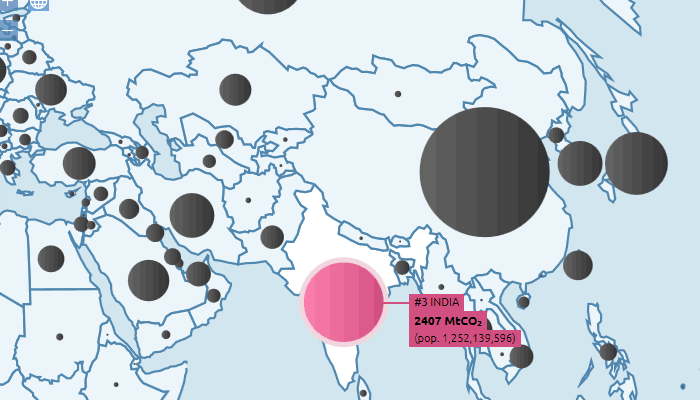
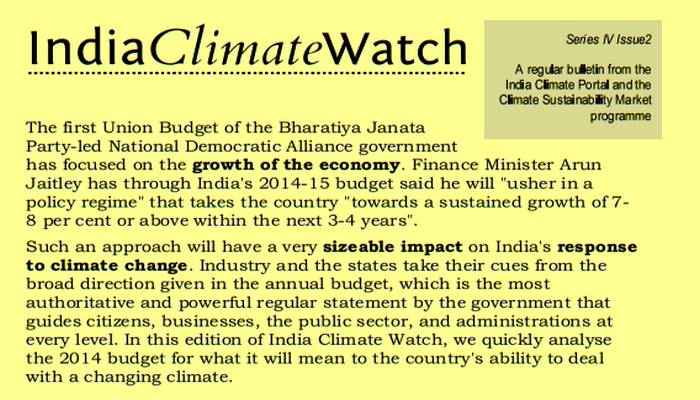 The first Union Budget of the Bharatiya Janata Party-led National Democratic Alliance government has focused on the growth of the economy. Finance Minister Arun Jaitley has through India’s 2014-15 budget said he will “usher in a policy regime” that takes the country “towards a sustained growth of 7-8 per cent or above within the next 3-4 years”.
The first Union Budget of the Bharatiya Janata Party-led National Democratic Alliance government has focused on the growth of the economy. Finance Minister Arun Jaitley has through India’s 2014-15 budget said he will “usher in a policy regime” that takes the country “towards a sustained growth of 7-8 per cent or above within the next 3-4 years”.